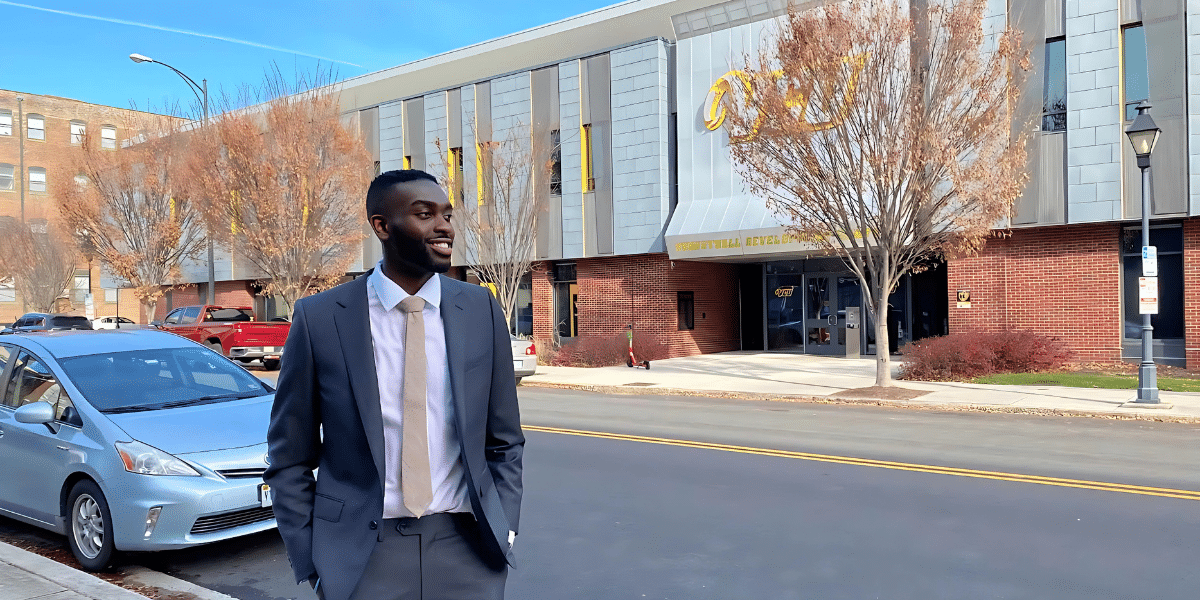CEO Weekly had the chance to sit down with Stephen Wendell, CEO of Mountain Shore Properties, for his take on enduring leadership qualities, the future of hotel development, and where opportunity lies in US real estate.
Mountain Shore Properties began with your father, Charlie Wendell, who developed and leased commercial buildings to tenants like Pizza Hut and Allied Chemical in the early 80s prior to hotel development for some of the most prominent hoteliers in the world like Hyatt and Marriott. What are the key characteristics of a successful CEO that you learned from your dad as you watched him grow the firm?
I grew up watching my dad be a professional “firefighter.” Great CEOs have a unique ability to address decisions from multiple perspectives to unlock value for everyone involved. As a CEO, you are trying to anticipate and mitigate issues before they arise while problem-solving in real-time. I witnessed my dad treat every person he encountered with respect both professionally and personally. This built the company’s reputation for decades through various economic cycles, the importance of which cannot be overstated. I also got to see firsthand what it means to truly pivot (sometimes on a daily basis). I don’t measure success in terms of always being right, it’s about working with reality to get to returns with a long-term outlook while earning respect and maintaining relationships along the way. This includes hiring with your own weaknesses in mind and having an executive team that complements each other. Mountain Shore’s conservative underwriting and financial discipline are under the purview of Ryan Reich, an astounding engineer of deal structure and financial analysis on a micro and macro level.
Do you classify yourself as a typical CEO, if there is one? How are decisions made across the executive team?
I’ve never met a typical CEO so can’t quite define one. If there is a standard CEO, that’s certainly not me and I don’t think my dad fits the bill either. By nature, I’m curious about all industries, geographic regions, and consumer behavior. In addition to my role at Mountain Shore Properties, I invest in startups and small businesses that I believe are in a position to make positive change and innovate. Studying consumer behavior and what emotions drive purchasing decisions bleeds into our work in creating bespoke hotel environments. The nuanced ways that people interact with places help us to bring to market spaces that strike a cord and resonate deeply for return visits. The built environment is our palette to bridge the gap between what’s missing in the market and what drives future value for our investors.
Capital markets are increasingly challenging right now yet you’ve continued to stay bullish. Your firm recently closed on a site in Chattanooga for a hotel set to open in 2025. How did this deal compare to past acquisitions and why was this submarket attractive?
We are selectively bullish in markets where we see value and operate from a perspective of cautious optimism. Chattanooga is an under-the-radar city that has undergone a renaissance in the last decade, just like the NuLu neighborhood of Louisville. The fundamentals that make this southeastern Tennessee city a desirable destination include its rising restaurant and retail scene. Additionally, there are virtually no hotels nearby so this was a particularly attractive opportunity to define the market. We also wanted to be mindful of the original structure’s aesthetic and keep the new property in context with its neighboring buildings. We partner with local development firms and liaise with the community to ensure we are building as much for them as for future patrons. The most celebrated boutique hotels marry the needs of locals and travelers in a harmonious way. The Chattanooga project will have programming and partnerships by and for the community just like at Hotel Genevieve which opened earlier this year in time for the Kentucky Derby.
Mountain Shore Properties now has $500 million in project value in 25 cities. What is your philosophy for identifying submarkets and which regions excite you most over the next ten years?
We seek out regions with positive economic markers like job growth, business relocations, lifestyle attractions, and proximity to transportation. We continue to be bullish on cities in the Southeast and mid-Atlantic. Mountain Shore has entered rising markets ahead of institutional players on multiple occasions and participated in tremendous upside due to proficiency in submarket evaluation. In addition to the Chattanooga acquisition, we are close to completing a purchase in North Charleston for another boutique hotel. North Charleston is an on-the-rise area with exceptional proximity to everything that the region offers from the historic parts of the city to the islands for day trips.
Skilled labor and the guest experience have been hot topics since travel opened up post-COVID. It’s my understanding that you hosted a job fair with your partners at Bunkhouse to find staff at Hotel Genevieve. What kind of training followed and how does this differentiate the experience at this property from other hotels in Louisville?
Bunkhouse as a brand distinguishes itself by its training, retention, and quality staff. They are experts at finding and guiding excellent people to perform great customer service. The ethos of the group is to integrate with its community and the end users feel this. Other properties in Louisville are taking notice and overall the sophistication of the hospitality scene is growing. It’s been fantastic to watch because Louisville is a really special place that brings together a diverse group of locals and travelers.
How has the popularity of the Bourbon Trail and the Kentucky Derby changed the hotel scene in Louisville? What other lifestyle amenities and attractions make the city desirable year-round?
In recent years America seems to have fallen back in love with the Kentucky Derby and Bourbon is certainly in vogue. Louisville has so much more to offer beyond these traditions including a state-of-the-art convention center, Louisville Slugger Museum, Professional Soccer Team, Minor League Baseball Team, great restaurants, riverfront attractions, and historic places like Cave Hill Cemetery and Olmsted Park, to name a few. Visitors marvel at how much is really going on and the same lifestyle perks continue to draw in people relocating from other cities.
Mountain Shore has developed offices including the location of your Charleston headquarters, The Refinery. What are your thoughts on work-from-home policies and do you have any advice for CEOs as they grapple with balancing efficiency and morale?
Work-from-home (or anywhere) is not sustainable for every industry and now we have the data to prove it. Companies still require office space, but, depending on the nature of the business and the makeup of your workforce, many businesses can get away with space that is smaller and more flexible. One of our projects in Charleston, The Refinery, is an excellent example of a mixed-use property that offers employees various experiences throughout the day. These types of developments play a huge role in recruitment and talent retention. The Refinery features exceptional offices, food, beverage, retail, special event spaces, and an outdoor music amphitheater. The makeup of the tenants plays a pivotal role in the character of an office property and that can’t be overlooked. It’s serendipitous when proximity enables new collaborations and creativity between office tenants.
Your Hudson Valley hotel Camptown opened earlier this year in Leeds, NY. I will admit I had never heard of Leeds but its proximity to Hudson is incredible. What’s been particularly interesting about the renovation of a 1930s former motor lodge compared to previous renovations?
This was a hundred-year-old property without city utilities. It was an off-market deal and the previous owners held the property for decades. In order to get the trenches in the ground to install utilities (plumber, sewer, etc.) we needed to dynamite the bedrock. Adaptive reuse is always challenging but particularly so in this part of the Hudson Valley. It was a serious labor of love and it’s been wonderful to see Camptown excel despite early obstacles in modernizing the property. The end result, including 26 charming cabins, is stunning and my partners, Ray Pirkle and Kim Bucci of Ramshackle Studio, did a spectacular job with the interior design. They also brought in renowned chef Efrén Hernández to helm Casa Susanna. His authentic Mexican cuisine is getting noticed nationally.
The sophistication of accommodations and the culinary scene in the Hudson Valley really is staggering. Is affordability a concern and are you planning more projects in the Hudson Valley?
We wanted to create a sophisticated yet affordable hotel given what’s changed in the Hudson Valley. Big players have entered the market and may have overshot. Our goal is to keep Camptown affordable while keeping the experience elevated. Casa Susanna’s success is a testament to the demand for restaurants of this caliber in the area. It’s been incredible to watch people be astonished by the beautiful dishes and creative menu.
Back to your Louisville property, Hotel Genevieve was a former parking lot next to the popular Rabbit Hole Distillery. Is ground-up development a preference or will Mountain Shore Properties also seek out adaptive reuse projects?
We’re open to all development opportunities but generally aim for ground-up development. New construction has been a specialty since my dad started the company.
In your opinion, are big-box hoteliers falling behind when it comes to adapting to travel preferences and consumer needs?
Hoteliers are hyper-aware of the needs of travelers hence the continued launch of boutique and soft-branded assets around the world. The question is will these properties be dynamic enough to pay 20 years of franchise fees. Long-term performance is a different barometer than initial hype.
What component of boutique hospitality is most ripe for disruption and how do you see change taking root?
Innovating management has the most opportunity so quality service is never sacrificed. Customer service and talent retention are the hardest pieces of the hospitality puzzle. Investing in your workers so they feel empowered in their position and want to stay for years is crucial. Things like keyless entry and tech adoption really don’t make or break a property though they may garner headlines. Creating unique experiences in unique properties across the US is extremely challenging and very few players have been able to achieve this at any type of scale. It’s one of our guiding principles.









